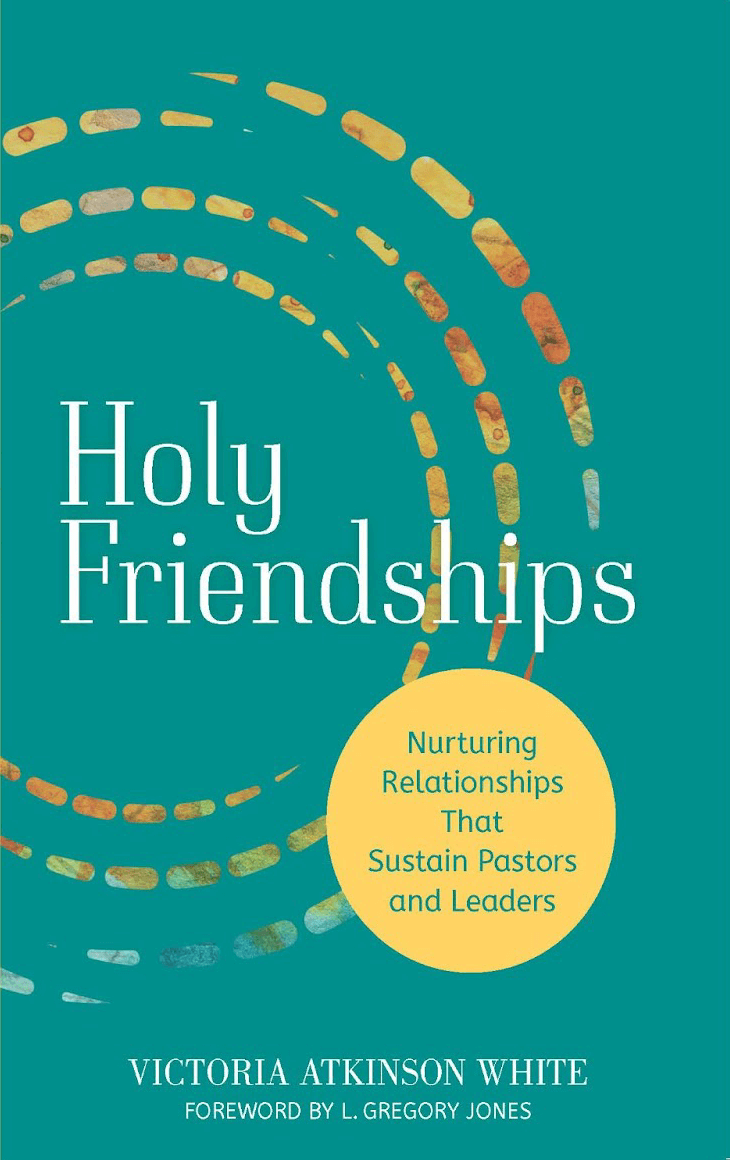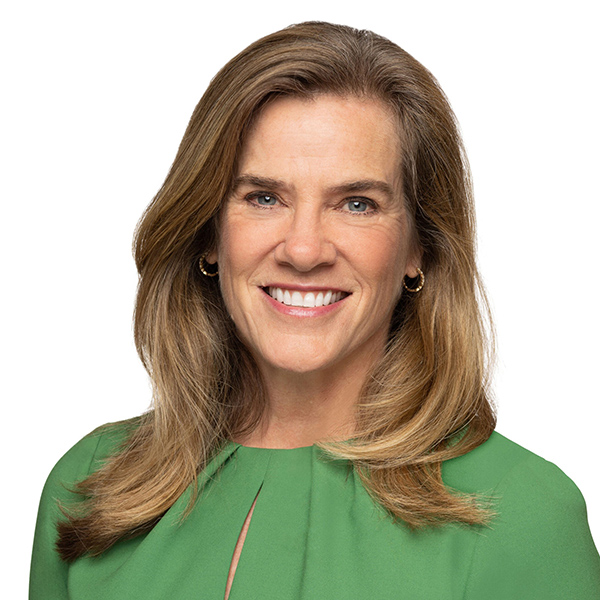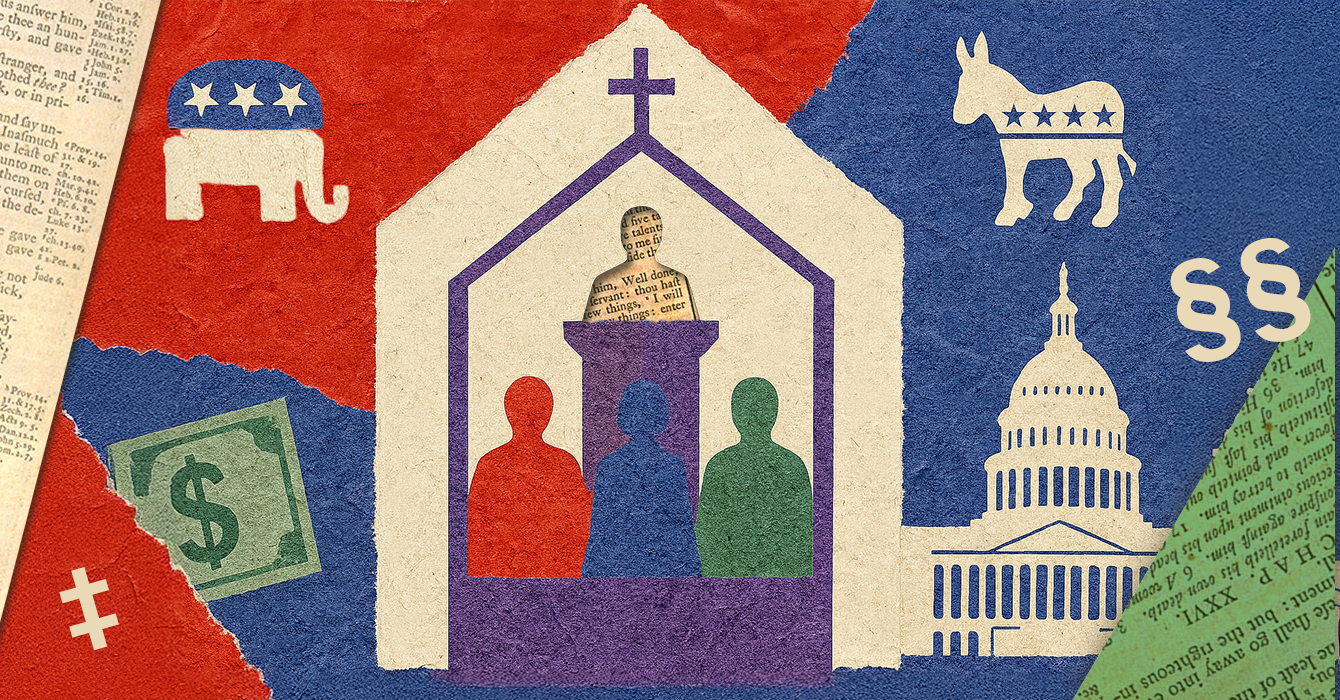“How do you have time for your holy friendships?” young leaders often ask me, as if I have a secret stash of time. “How do you have time for a demanding career, a young family and robust friendships?” My answer is straightforward: I can’t afford not to. Spending time with my holy friends is as critical to my health as good food, intellectual stimulation or sleep. While I believe I could, I don’t want to be a wife, parent or minister without my friends by my side. Life is hard, and I don’t want to do it without the help of my holy friends. And ultimately, I am not built to. God created us to live and love in community.
As religious institutions increasingly grasp for resources, Christian leaders are especially burned out, isolated, alone and left to fend for themselves in communities that cannot comprehend their pain. To make matters more dire, pastors tackle a profession that makes asking for help especially hard, so leaders often do not voice their distress until it’s too late. Once again, pastors and Christian leaders are learning what we so easily forget: ministry is not sustainable when a leader is alone.
Within many Christian institutions, there is a ready assumption that “sustainability” means financial viability. And while financial viability is one aspect of an institution’s sustainability, it is not the most essential factor for nurturing a healthy and robust institutional life. An institution cannot thrive if its leaders are not healthy, so my first question to harried pastors and Christian leaders trying to keep their churches and institutions afloat is always, How do you invest in your own sustainability?
What are you doing to keep yourself healthy — physically, emotionally, spiritually, financially, socially and intellectually? Tell me: What is your sustainability plan?
It’s a simple fact that healthy institutions are led by healthy leaders.
At this point in the conversation, pastoral leaders look at me bewildered, because their recognition of their loneliness and lack of healthy social relationships confronts them in ways they cannot ignore. They realize that they have fallen into patterns and practices of isolation so familiar now that they feel normal. Tired and lonely, they see that they’ve forgotten the hope and possibility that led them to this work in the first place.
“So what are we supposed to do? What does investing in our sustainability look like?” they ask, hoping for an easy answer. And I always start my answer here: cultivating and nurturing holy friendships is critical to human flourishing. Pastors and Christian institutional leaders cannot do the holy work they are called to do without holy friends.
Holy friendships are mutual and sacred relationships deeply formed in God’s love. Mutuality comes from acknowledging the feeling of belonging that binds holy friends together with a shared sense of reciprocity. Sacred refers to the “set apart-ness” of holy friendships. They are more intentional, more intimate and different from ordinary friendships; they are holy, “regarded with or deserving deep respect, awe, reverence or adoration.” Because holy friendships are deeply formed in God’s love, we incarnate God’s love to one another. In loving our holy friends, we are also loving God, loving ourselves and loving our neighbors.
Furthermore, holy friends participate in our lives in a triune way. They root us in God’s ongoing story by validating our past, holding space for us in our present, and helping us midwife a vision for the future.
Holy friends validate our past.
Holy friends validate our past and help us reframe our old stories to reorient us toward God’s love. They redirect our perspectives and reframe unhelpful memories so we can learn from our past and live into fresh and healthier versions of our vocation. They do this by offering alternative perspectives, reminding us that interpretations are not always set in stone and can be retold from different points of view, and inviting us to shift the way we behave in light of new discoveries and learning. Holy friends help set us free from what holds us back and walk alongside us into a healthier present and future.
Cultural anthropologist Marlon Hall has a powerful mantra he shares when he teaches a yoga class. Helping his students focus on the alignment of the body, mind and spirit, he has his students repeat, “I am not my thoughts.” Our negative thoughts can easily strip us of feelings of worthiness, love, hope, peace or happiness. Holy friends sense this and name or, to use a biblical metaphor, “call out” the demons of negative self-talk and self-sabotaging thoughts, calling us to a space where sin is brought to light. Once the negativity is revealed in the light of God’s love and grace, we can re-narrate our once-painful stories, not to erase the pain, but to rewrite the ending with an emphasis on redemption. Holy friends see us in our pain, stick beside us, and guide us into new life where we record new mantras, reframe old memories, and tell stories of resilience and hope. Ultimately, holy friends are our story editors.
Validating our past and re-narrating unhelpful stories about ourselves and others is some of the most vulnerable and brave work holy friends do for each other. We share our fears and failures, our hopes and dreams, and we reveal parts of ourselves few people ever see. This is the sacred space in which holy friends pull us, sometimes kicking and screaming, out of the past and into a more hopeful and healthy present and future filled with meaning and purpose.
Holy friends hold space for us.
By “holding space,” a term borrowed from counseling and other listening-based therapies, holy friends cultivate an unconditional safe space where we are confident that we can be vulnerable, our most authentic selves. One leader explained, “My holy friends create a space where I can bring all of who I am. I don’t feel like I need to wear any masks or be someone else to be accepted or received. They help me be vulnerable, especially when it is hard.”
When holy friends hold space for each other, we focus our attention on what is and is not being said and how the Holy Spirit is moving in the stories and the space. We might be accountability partners, walk alongside each other in trauma, or reorient our attention away from our needs and wants to God’s. Thanks to technology, holding space for a friend is not limited to in-person conversations. We can hold space from afar through calls, videos, texts, messages and mail.
My holy friend Jean and I have a code word for holding space for each other: “basket.”
If I am the one requesting the basket, Jean will call me and we’ll have an intentionally one-sided conversation in which Jean holds space for me. Jean holds a metaphorical basket; I like to think of it as a large laundry basket. I spew out anything and everything on my mind in a run-on sentence, a cathartic rant. I am as vulnerable as I choose to be. She may let me know she is listening or make empathetic sounds like, “Uh-huh,” “Oh, wow” and, “That sounds hard.” She doesn’t question my rationality or logic. She doesn’t ask for more details. She listens without judgment and holds the basket while I dump in everything that is bothering me.
As I proceed from topic to topic, I begin to feel lighter and less burdened, because Jean is “holding” all my thoughts, feelings and frustrations in the moment. As I feel lighter, I often gain clarity and discern solutions to some of my problems and then describe them out loud.
When I am done putting things in the basket, I pause and appreciate the relief that I feel because I am not carrying such a heavy load on my own. Jean may then say something like this: “This is a very heavy basket. You have a lot going on, and I am sorry you felt like you had to carry all this for so long on your own. Thank you for trusting me to hold your basket for you. What would you like to do with the basket? Do you want to talk about anything in it? Do you want to circle back to something later? I’m not going to do anything without your permission and direction, so you tell me how you want to proceed.”
At that point, I usually feel calmer, more thoughtful, and clearer about a way to move forward with authenticity, intentionality and focus. My basket may still be heavy, but because Jean held it for me while I made sense of its contents, I have a better idea of what is in it, what my priorities should be, and what my next right steps need to be. Most often, I only need her to be present and listen while I talk.
Therapists, counselors and coaches often hold space for their clients, albeit in a transactional way, because they are paid for their services. The practice is different with holy friends, because we choose to open ourselves up to mutually respectful and thoughtful critique, admonition, feedback and advice. Our holy friends take holding space a step further because of the mutuality of the relationship, which helps us hold each other accountable to who we say we want to be and the call God has placed on our lives.
The way holy friends hold space for each other can be as different as each holy friend. Over time and through shared experiences, holy friends figure out what rhythm of conversation, feedback, advice and accountability works for them. Often, I can tell from the tone of my holy friends’ voices whether they need me simply to be present while they talk, cry or remain silent, or whether they are seeking affirmation, counsel or accountability. This care is rooted in our unwavering support, our commitment to each other’s flourishing and God’s unconditional love.
Holy friends help us midwife a vision for the future.
Finally, holy friends help us midwife a vision for the future, because they see us as key contributors in God’s ongoing love story with creation. Holy friends push us to dream bigger, aim higher and trust God more fully than we would on our own.
Logan was applying for the job of his dreams. Pastoring this church in this town was what he had been working toward his entire vocation. He met most of the qualifications, but he was worried about the few he didn’t.
An hour before his interview with the search committee, he got an email from his holy friend Stacy. Stacy had found a copy of the church’s Sunday bulletin online and made a few changes. On the cover of the bulletin, beneath the picture of the beautiful church and the congregation’s motto, she had superimposed, “Welcomes Logan Johnson as our seventh senior pastor.” The image looked so real, it took him by surprise. At the end of her message, Stacy had written, “Go into that interview and BE THEIR PASTOR. You’ve got this.”
It was just what Logan needed to ace the interview. Stacy believed in him when he doubted himself. She gave him an actual vision of the future she knew was already his.
At their best, holy friends help each other envision, articulate and apply Ephesians 3:20 to our lives: “Now to [God] who by the power at work within us is able to accomplish abundantly far more than all we can ask or imagine …” (NRSV). Left to my own devices, I would perseverate on my past, particularly my failings, and I would be content with a smaller and less impactful version of myself. Holy friends push me to accomplish abundantly far more than I could ask or imagine for myself, my vocation and God’s work in the world. They address the gap between who I am and who God is calling me to be. Holy friends help us see the world around us not only through the eyes of others but through God’s eyes so we can come alongside God’s work in the world.
Excerpt adapted from “Holy Friendships: Nurturing Relationships That Sustain Pastors and Leaders,” by Victoria Atkinson White. Copyright © 2023. Published by Fortress Press. Used with permission.

























